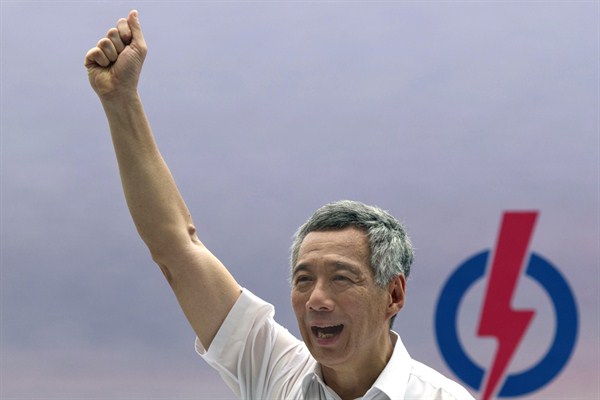Ahead of Singapore’s general elections on Sept. 11, both major parties contesting the poll have said it will be definitive, even historic. At a press conference on Sept. 1, Prime Minister Lee Hsien Loong of the People’s Action Party (PAP), which has ruled Singapore since the city-state was founded five decades ago, told reporters, “The country is at a turning point. Question is, in what direction do we now go?” That sentiment was echoed by Sylvia Lim, one of the leaders of the main opposition Workers’ Party.
In some ways, election day will indeed be historic. For one, it is the first election in Singapore’s independent history in which founding father Lee Kuan Yew will not be up for a seat in Parliament. Lee died in March, prompting an outpouring of Singaporean emotion; thousands of Singaporeans waited in long lines in the brutally hot sun to pay their respects. The swell of emotion over Lee’s death is probably one reason why the PAP, which as the ruling party can call elections anytime within a five-year period, called this snap general election for September. Prime Minister Lee Hsien Loong likely hopes that some of the admiration for his father will translate into backing for the PAP at the polls.
Those polls will also be Singapore’s first election in which all parliamentary seats are contested. For decades the PAP ran essentially unopposed. But in the last election, held in 2011, the PAP took its lowest share of the popular vote in Singapore’s history. The opposition also won what is called a group member constituency—an area in which four to six people represent the constituency, rather than a single member—for the first time ever. The watershed results prompted the opposition parties to run candidates in every parliamentary district in this year’s elections. They also clearly worried the PAP: After the 2011 elections, Prime Minister Lee launched what the government called a “national conversation” to better understand Singaporeans’ concerns—about Singapore’s high rate of immigration, the perceived lack of a social welfare net for older Singaporeans and high inequality in the wealthy city-state.

